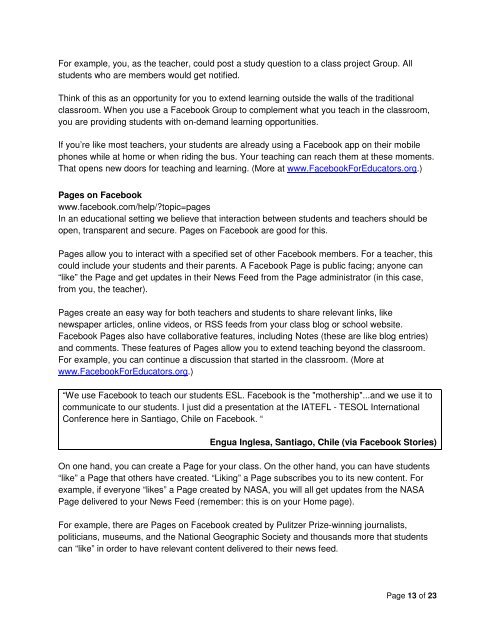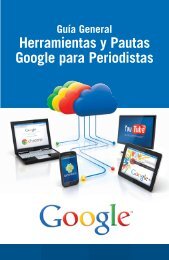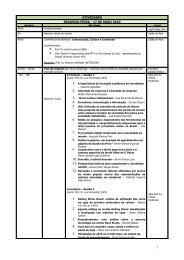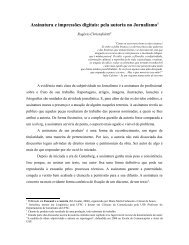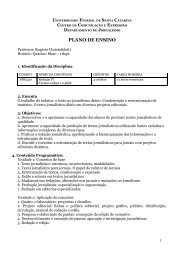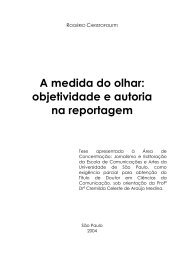Facebook for Educators - Internet Safety Wiki
Facebook for Educators - Internet Safety Wiki
Facebook for Educators - Internet Safety Wiki
Create successful ePaper yourself
Turn your PDF publications into a flip-book with our unique Google optimized e-Paper software.
For example, you, as the teacher, could post a study question to a class project Group. Allstudents who are members would get notified.Think of this as an opportunity <strong>for</strong> you to extend learning outside the walls of the traditionalclassroom. When you use a <strong>Facebook</strong> Group to complement what you teach in the classroom,you are providing students with on-demand learning opportunities.If you’re like most teachers, your students are already using a <strong>Facebook</strong> app on their mobilephones while at home or when riding the bus. Your teaching can reach them at these moments.That opens new doors <strong>for</strong> teaching and learning. (More at www.<strong>Facebook</strong>For<strong>Educators</strong>.org.)Pages on <strong>Facebook</strong>www.facebook.com/help/?topic=pagesIn an educational setting we believe that interaction between students and teachers should beopen, transparent and secure. Pages on <strong>Facebook</strong> are good <strong>for</strong> this.Pages allow you to interact with a specified set of other <strong>Facebook</strong> members. For a teacher, thiscould include your students and their parents. A <strong>Facebook</strong> Page is public facing; anyone can“like” the Page and get updates in their News Feed from the Page administrator (in this case,from you, the teacher).Pages create an easy way <strong>for</strong> both teachers and students to share relevant links, likenewspaper articles, online videos, or RSS feeds from your class blog or school website.<strong>Facebook</strong> Pages also have collaborative features, including Notes (these are like blog entries)and comments. These features of Pages allow you to extend teaching beyond the classroom.For example, you can continue a discussion that started in the classroom. (More atwww.<strong>Facebook</strong>For<strong>Educators</strong>.org.)“We use <strong>Facebook</strong> to teach our students ESL. <strong>Facebook</strong> is the "mothership"...and we use it tocommunicate to our students. I just did a presentation at the IATEFL - TESOL InternationalConference here in Santiago, Chile on <strong>Facebook</strong>. “Engua Inglesa, Santiago, Chile (via <strong>Facebook</strong> Stories)On one hand, you can create a Page <strong>for</strong> your class. On the other hand, you can have students“like” a Page that others have created. “Liking” a Page subscribes you to its new content. Forexample, if everyone “likes” a Page created by NASA, you will all get updates from the NASAPage delivered to your News Feed (remember: this is on your Home page).For example, there are Pages on <strong>Facebook</strong> created by Pulitzer Prize-winning journalists,politicians, museums, and the National Geographic Society and thousands more that studentscan “like” in order to have relevant content delivered to their news feed.Page 13 of 23


